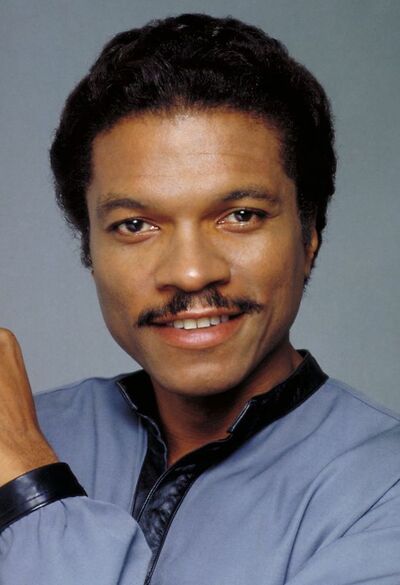
With the newest installment in the Star Wars universe, Star Wars: The Force Awakens, releasing this Friday, I figured we need more Star Wars posts here at the PowerBlog. (Does the Force tend to corrupt?)
Because I’ve completely failed to maintain a cautious optimism and am now totally geeked for the new film, I recently re-watched the original trilogy (not that other one, oh no). Among other insights, I noticed that at least one major character is a small business owner: Lando Calrissian.
Lando explains his business philosophy in the clip from The Empire Strikes Back below … right before he sells out Han and Leia to Darth Vader and Boba Fett.
If you keep watching, you get see what is perhaps the worst first meeting with a girlfriend’s dad ever.
Now, notice: Lando’s gas mining operation on Cloud City has done well because he’s managed to keep the government, the Empire, out of his business as well as stay out of the mining guild. Doing so is “advantageous to everybody.” It attracts a certain clientele that would either be under-served or not served at all by larger businesses under a different regulatory climate.
No doubt, operating under the radar (or tractor beam, as the case may be) also allows Lando to charge lower prices, as he presumably wasn’t paying taxes to the Empire or dues to the mining guild.
However, in this clip we also see the danger of black market operations. Under threat of being shut down by a corrupt government official (Vader), and with no support from any private associations, Lando believes he has “no choice” but to betray his friends to stay in business. As time goes on, the deal he made keeps changing and getting worse. In short: Cloud City lacks the protection of the rule of law, on the intragalactic level, at least.
Finally, Lando’s conscience gets the best of him. He decides to renege on his deal with the Empire and attempt to free Han, who now is frozen in carbonite (whatever that is). His noble act earns him a stranglehold from Chewbacca and loses him Cloud City. On the plus side, he (temporarily) gets his old ship back, the Millennium Falcon, whose previous owner once boasted “made the Kessel run in less than twelve parsecs” (which actually doesn’t make any sense).
That, and Lando does the right thing, which is far better for his soul.
Lando’s story in The Empire Strikes Back highlights a few important lessons when it comes to free societies, such as the benefits of minimal regulation and the need for the rule of law. Even deeper, however, it reminds us that there are more important aspects of life than our economic interests.
We may even speculate that Lando believed himself to be acting in the best interests of not only himself but his whole community, all the people that relied on his successful mining operation for their livelihood. However, what good would it be for him to gain even the whole galaxy yet forfeit his soul (cf. Mark 8:36)?
It would be easy to think of Lord Acton’s saying that power tends to corrupt in external terms, as referring to the way it can affect institutions, governments, communities, and societies. But it never does any of that without first corrupting the hearts of the holders of power. Lando nearly gave into that temptation, but in the end he chose virtue over power and he, his friends, and the whole galaxy were better, and freer, for it.